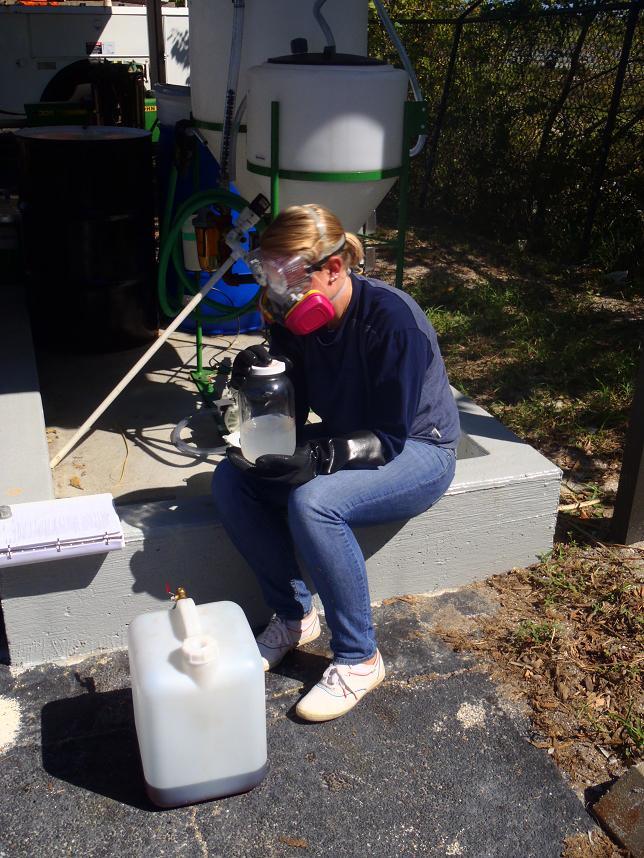Engineering grad student debuts on-campus biodiesel processor



February 20, 2012
BY Bryan Sims
Ever since she was little Michelle Rodio was fascinated with trying to make the world a better place. While growing up, partaking in recycling and other ecofriendly initiatives became a natural part of her life. Now, a mechanical engineering graduate student at Embry-Riddle Aeronautical University in Daytona Beach, Fla., Rodio is focused on engineering solutions for real problems by converting used cooking oil collected from the university’s cafeteria into biodiesel to fuel the campus lawn maintenance vehicles.
Rodio’s interest in biodiesel sparked last fall when she took a class on clean energy systems, which required students to do a project on alternative energy. On Feb. 22, Rodio will debut a biodiesel production facility she had been developing on campus over the past year and a half.
“I wrote my first paper on biodiesel and it just kind of prompted everything,” Rodio told Biodiesel Magazine. “It actually started out as a way to help the university save money on fuel costs. This is just a fun project for me.”
Advertisement
Teaming with two other students, Jay Ekelmann and Ken Meierjurgen, Rodio was able to obtain funding from Richard Heist, ERAU’s executive vice president and chief academic officer, and Maj Mirmirani, dean of engineering, to complete the biodiesel production facility on campus.
Rodio’s biodiesel processor, a Freedom Fueler Biodiesel Processor purchased online, mixes used cooking oil collected from the campus kitchen along with methanol and caustic soda to produce 40 gallons of biodiesel per batch.
Over time, Rodio said she intends to make the switch from using sodium hydroxide to using potassium hydroxide because, as she said, “It gives you a little bit better results with the glycerin byproduct.”
Advertisement
Currently, Rodio is comparing diesel fuel with B20 and assessing mileage comparison and emission profiles between the two fuels on a single maintenance tractor, considered the “test vehicle.” Rodio graduates this spring, but she intends to pass the baton over to her colleagues to further the project she helped create by comparing higher blends of biodiesel in order to determine which optimal blends of biodiesel might be better suited to fuel campus maintenance vehicles.
“Once we find that perfect blend, we plan to power all of the facility’s tractors from here on out,” Rodio said.
Rodio’s innovative project ties in with a university-created program called IGNITE!, which seeks to enhance education by encouraging students to get involved in research. Embry-Riddle is unique among other U.S. universities in that its students are allowed to take part in applied research.
Upcoming Events





